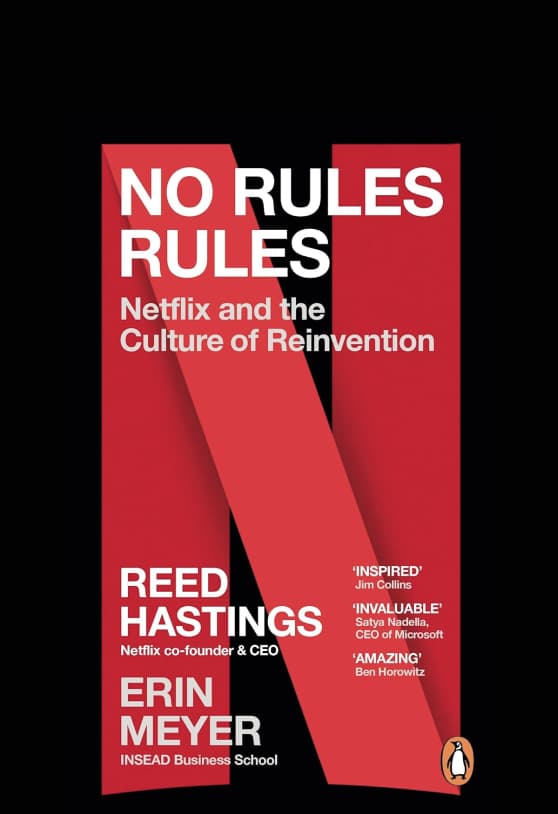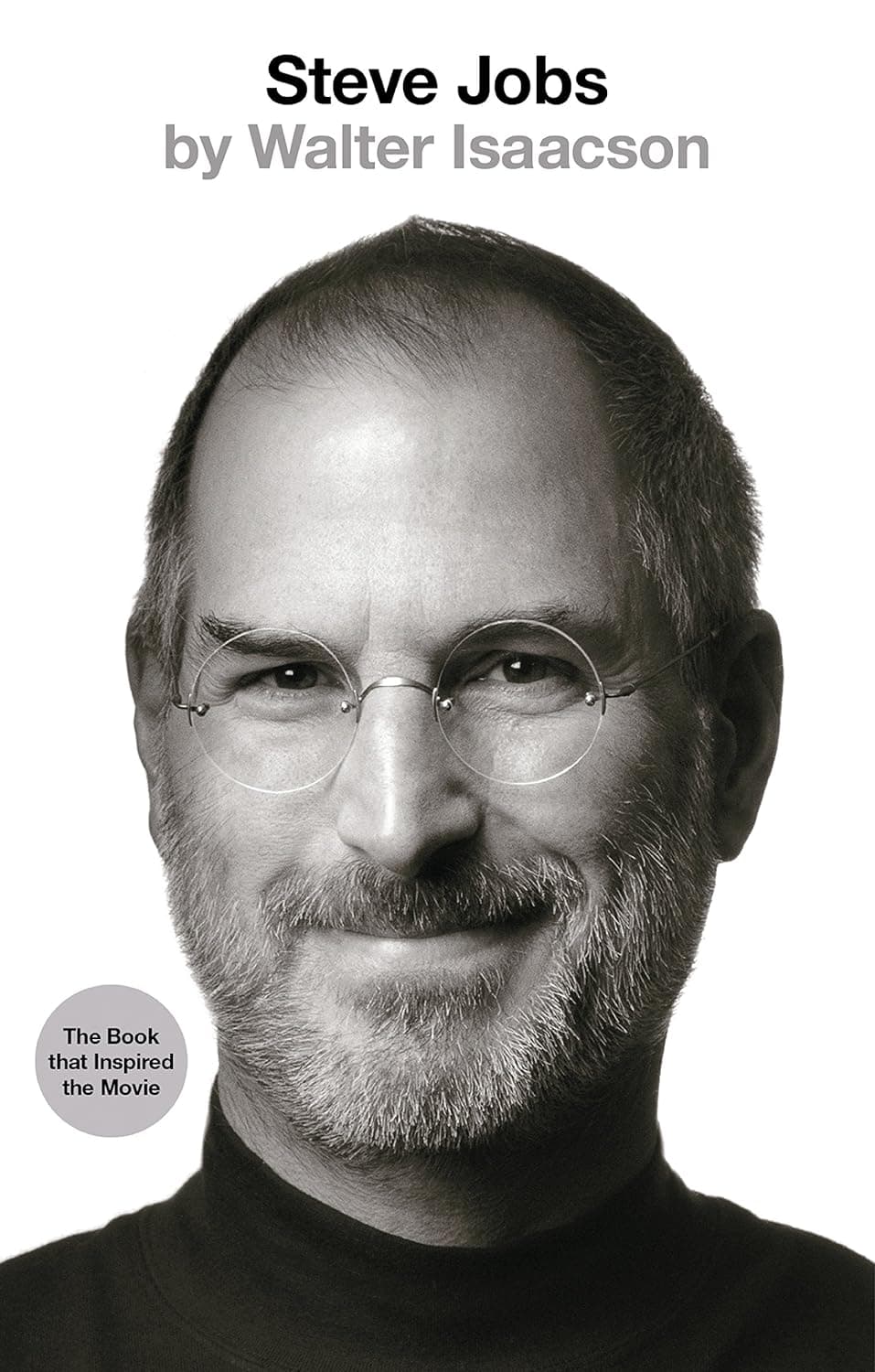The Challenger Sale
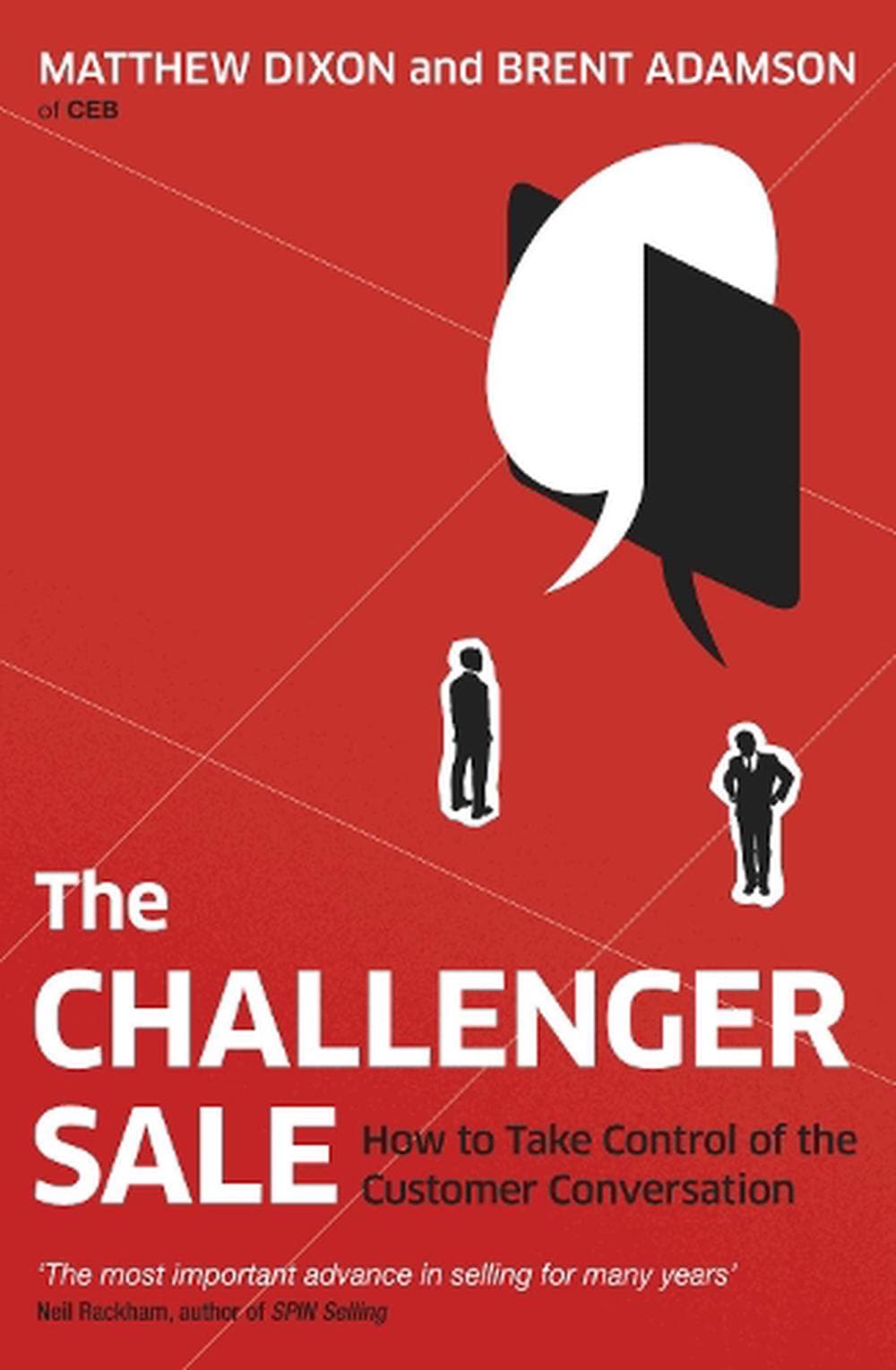
GET THE #1 EMAIL FOR EXECUTIVES
Subscribe to get the weekly email newsletter loved by 1000+ executives. It's FREE!
Summary of the Book
The challenger sale is a book that outlines the five most common types of salespeople and how they approach their work.
The five types are:
- The relationship builder
- The reactive problem solver
- The hard worker
- The lone wolf
- The challenger
The book argues that the challenger is the most effective type of salesperson because they are able to challenge the customer's thinking and provide new insights that can help them make better decisions.
Insight Centric
One of the most interesting concepts I found was that the most effective salespeople are those who are insight-centric, meaning that they are able to provide new insights that can help the customer make better decisions. The book outlines three key elements of being insight-centric: teach, tailor, and take control.

Sales study
The book is based on extensive research conducted by the Corporate Executive Board (CEB), involving over 6,000 sales representatives across various industries and geographies. The study analyzed sales performance metrics, surveyed and interviewed sales reps, managers, and customers.
The Five Sales types
Let's explore the 5 different types:
- The Relationship Builder
- The Reactive Problem Solver
- The Hard Worker
- The Lone Wolf
- The Challenger
I've created some infographics to help illustrate the differences between these five types of salespeople. Note the % of salespeople that fall into each category is the number in the top right hand side.
The Relationship Builder
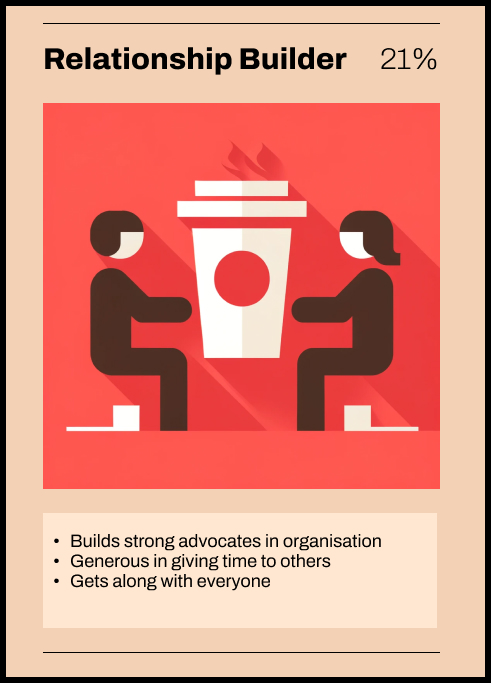
The Reactive Problem Solver
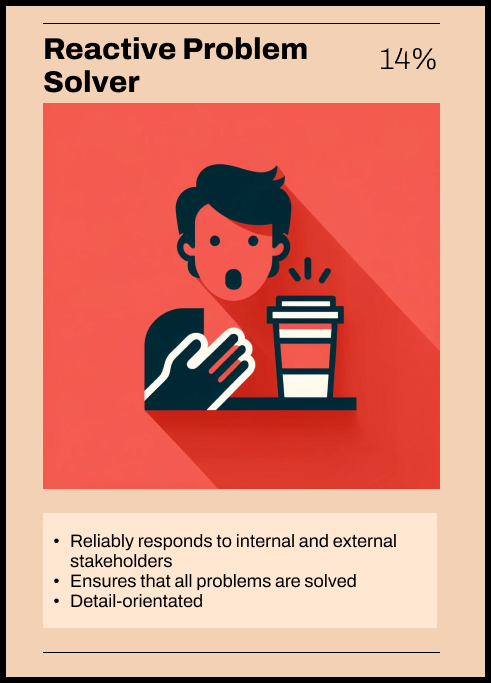
The Hard Worker
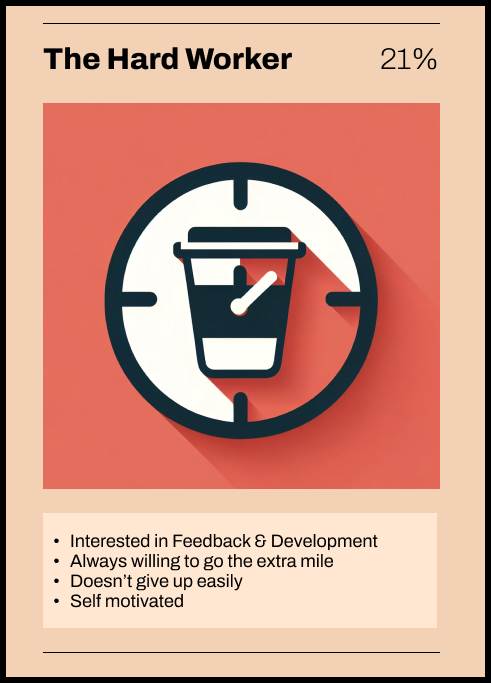
The Lone Wolf
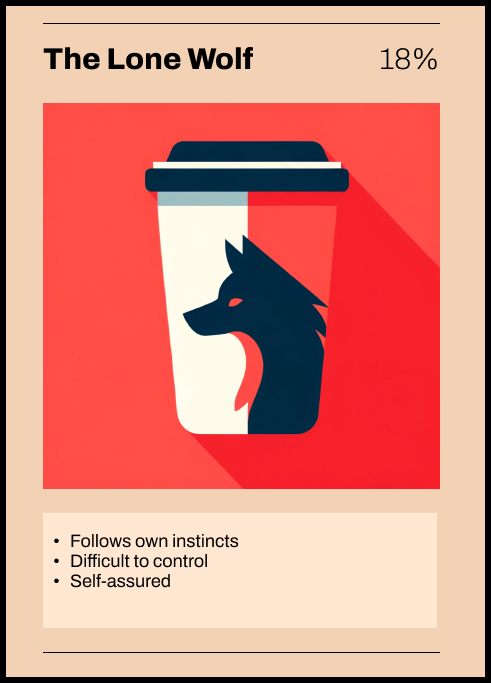
The Challenger

The book's main argument is that the Challenger is the most effective type of salesperson because they are able to challenge the customer's thinking and provide new insights that can help them make better decisions. Ultimately this is what customers are looking for when they are trying to buy something. They want to be challenged and they want to be given new insights that can help them make better decisions.

Examples of how a Challenger challenges
For instance, instead of simply discussing their product, a Challenger might start by highlighting a market trend or industry shift that the customer hasn't fully considered. This reframe forces the customer to rethink their approach to their business challenges.
Example: "You may not realize it, but the way your industry is shifting, your current approach might leave you vulnerable to new competitors. Let me show you some data on this trend."
Teaching for differentiation example "Many companies in your sector focus on cost-cutting to improve margins, but what we've found is that companies that invest in advanced analytics actually see a 20% higher return. Here's how..."
Taking Control Example "I understand the need to manage costs, but I believe the value we bring justifies the investment. Let's discuss how our solution can deliver ROI quickly and impact your bottom line positively."
Sales Performance results
The book outlines some interesting statistics on the performance of the five types of salespeople. The Challenger is by far the most effective type of salesperson, with the highest percentage of high performers and the lowest percentage of low performers.
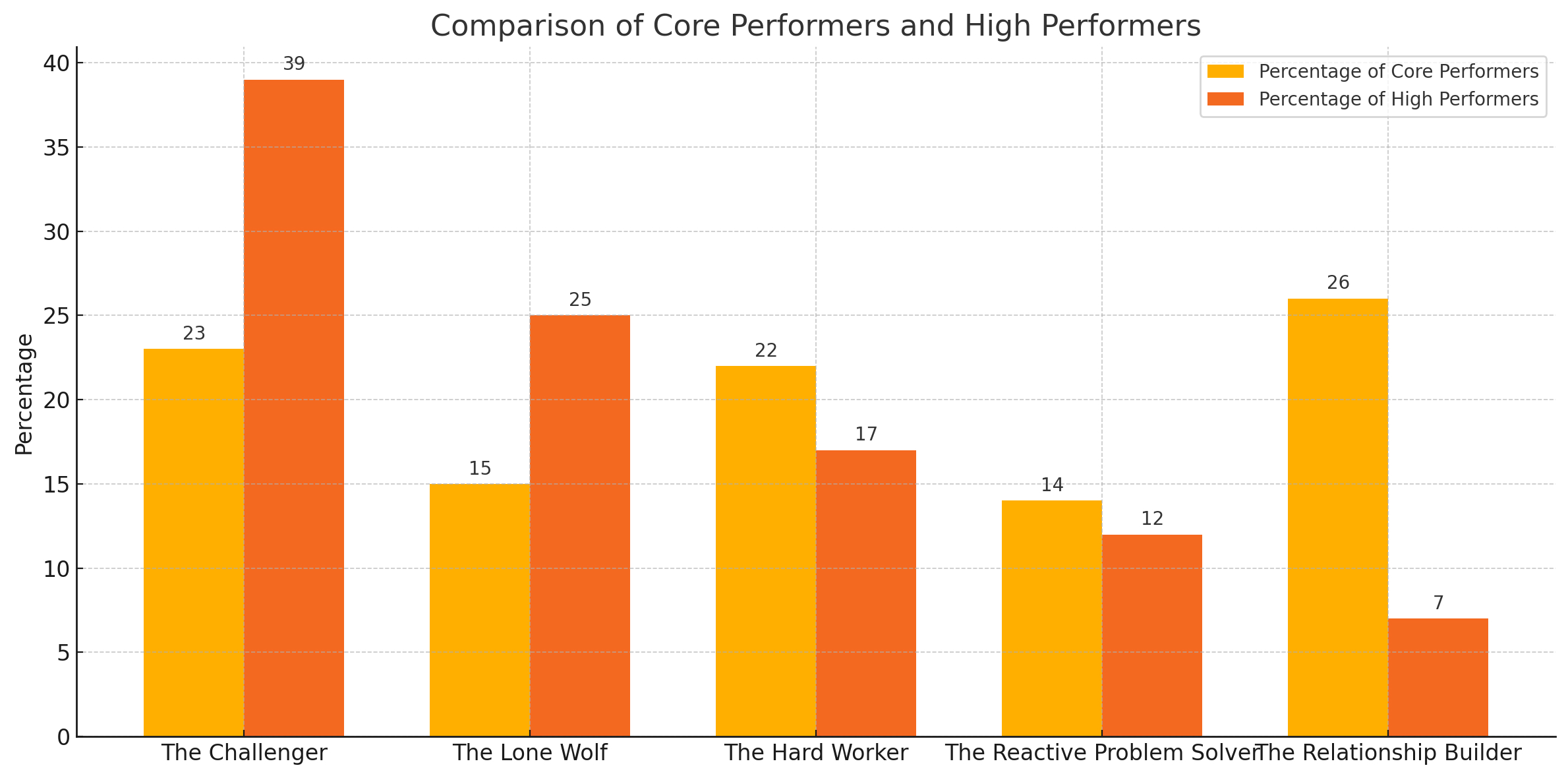
Being Insight Centric

The book argues that the most effective salespeople are those who are insight-centric, meaning that they are able to provide new insights that can help the customer make better decisions. The book outlines three key elements of being insight-centric:
- Teach: The salesperson must be able to teach the customer something new that they didn't know before.
- Tailor: The salesperson must be able to tailor their insights to the customer's specific needs and challenges.
- Take Control: The salesperson must be able to take control of the sales conversation and lead the customer to a decision.
Let's break down the Challenger Archetype
The Challenger is the most effective type of salesperson because they are able to challenge the customer's thinking and provide new insights that can help them make better decisions. The book outlines three key elements of being a Challenger:
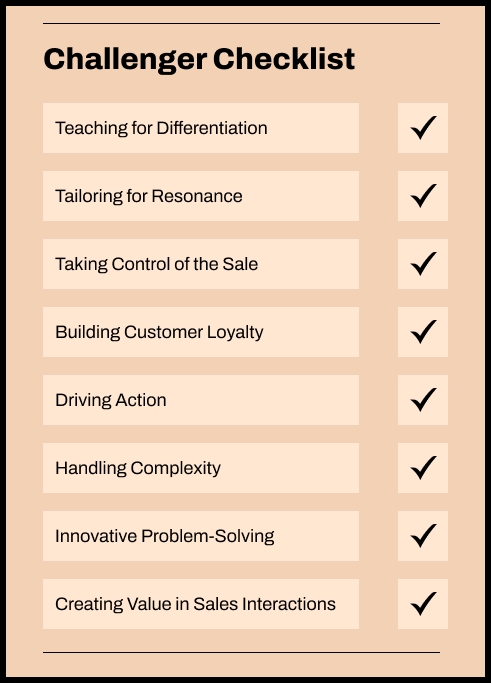
1. Teaching for Differentiation
- Unique Perspectives: Challengers offer customers new insights and perspectives that challenge their existing assumptions.
- Reframe Thinking: They reframe the way customers think about their business and competition.
2. Tailoring for Resonance
- Understand the Customer's Business: They possess a deep understanding of the customer’s business, including economic drivers and value drivers.
- Deliver the Right Message: They tailor their message to resonate with the right person within the customer organization.
3. Taking Control of the Sale
- Assertiveness: Challengers are assertive and not afraid to push the customer a bit on their thinking, pricing, and decision-making.
- Comfort with Money: They are comfortable discussing money and can handle pricing discussions confidently.
4. Building Customer Loyalty
- Teach New Things: They focus on teaching customers something new and valuable that helps them compete more effectively.
- Focus on the Customer’s Success: Their success is measured by the performance of the customer’s business, not just the supplier’s products.
5. Driving Action
- Catalyze Action: They catalyze action by challenging customers’ assumptions and pushing them to take action based on new insights.
- Overcome Comfort Zones: They move customers out of their comfort zones, encouraging them to think differently and make changes.
6. Handling Complexity
- Navigate Complex Sales: Challengers excel in complex sales environments where they need to engage multiple stakeholders and manage intricate sales processes.
- Simplify the Purchase Process: They lead and simplify the purchase process, teaching the customer how to buy the solution effectively.
7. Innovative Problem-Solving
- Creative Solutions: They find creative and innovative ways to help the customer’s business.
- Proactive Advice: They provide ongoing advice and consultation, helping customers avoid potential pitfalls.
8. Creating Value in Sales Interactions
- Memorable Interactions: Their interactions are valuable and memorable, often described as interesting, new, thought-provoking, or game-changing.
- Focus on the Customer's Needs: They focus on what the customer is trying to accomplish, rather than just what they are selling.

The difference between the challenger and the lone wolf
A Lone Wolf and a Challenger differ significantly in their sales approach and behavior. A Lone Wolf is highly independent and relies on personal judgment, often disregarding standard processes and working best alone.
They achieve success through intuition and individual efforts but can be difficult to manage and inconsistent in performance.
In contrast, a Challenger is assertive, focuses on educating and challenging customers, and tailors their approach to meet specific needs. They follow a structured sales process, drive customer action by pushing them out of their comfort zones, and are effective in complex sales environments.
Challengers work well within a team, respond positively to coaching, and build strong customer relationships through valuable insights, making their approach more scalable and consistent compared to Lone Wolves.
Interesting Quotes








As an Amazon Associate I earn from qualifying purchases.





